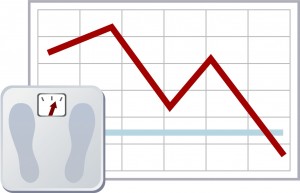
Anorexia nervosa has long been known to have a poor prognosis and few effective treatments are available (Kaplan and Garfinkel, 1999). Research in this area is limited, particularly in regards to evidence-based guidance. The NICE eating disorders guidance (2004) is in need of an update, although there is a more recently produced care pathway. Other guidance focuses on re-feeding safely, e.g. the MARSIPAN guidance produced by the Royal College of Psychiatrists and Royal College of Physicians (2010 and 2012).
Studies measuring the success of treatment are often of low quality, with small sample sizes and no control group, making data unreliable due to the lack of comparison.
In October last year, the Lancet published a German randomised controlled trial exploring the efficacy of two therapies in outpatients with anorexia nervosa.
Methods
Ten German University departments of psychosomatic medicine and outpatient psychotherapy screened patients over a two-year period.
In order to meet criteria:
- Participants had to be over 18 years of age
- Be female
- Have a diagnosis of anorexia nervosa or subsyndromal anorexia nervosa (where one diagnostic criterion is absent) according to the diagnostic and statistical manual of mental disorders, 4th Edition (DSM-IV)
- A body mass index (BMI) of 15-18kg/m²
With the exclusion of:
- Current substance misuse
- Ongoing psychotherapy
- Serious unstable medical problems
Randomisation was centralised independently with patients being randomly assigned to one of three groups for ten months:
- Focal psychodynamic therapy (FPT)
- Enhanced cognitive behaviour therapy (ECBT)
- Optimised treatment as usual (OTAU)
The study stratified randomisation by centre and the duration of anorexia nervosa to six years or less, or more than six years.
Measures were primarily by BMI and secondly by rate of recovery (based on weight gain and eating disorder-specific psychopathology).
Measurements were taken at five points
- A baseline measurement before randomisation
- 4 months after treatment
- 10 months after treatment
- 3 month follow up
- 12 month follow up
-

Female adults with anorexia and a body mass index (BMI) of 15-18kg/m² were included in the study
Results
- 727 patients were screened for inclusion
- 242 underwent randomisation:
- 80 to FPT
- 80 to ECBT
- 82 to OTAU
- At the end of treatment, 54 patients were lost to follow up (22%)
- At 12-month follow up, 73 had dropped out (30%)
- BMI increased in all study groups at the end of treatment:
- FPT 0.73kg/m²
- ECBT 0.93kg/m²
- OTAU 0.69kg/m²
- At 12-month follow up, BMI had further increased:
- FPT 1.64kg/m²
- ECBT 1.30kg/m²
- OTAU 1.22kg/m²
- No differences were found between groups
- OTAU, combining psychotherapy and structured care from GP should be the baseline treatment for adult outpatients with anorexia nervosa
- At 12-month follow up FPT proved effective in recovery
- Enhanced cognitive behavior therapy was the most effective in speed of weight gain and improvements in eating disorder psychopathology

30% of patients in the study had dropped out by 12 months
Discussion
The study managed a huge achievement in the number of participants, even following the dropout rate. All participants increased their BMI, therefore it illustrates interventions and support by a GP can work.
There are some limitations to this study:
- Although BMI increased in each group, there was no significant difference between each group or in actual BMI. Therefore it is difficult to compare the therapies as opposed to treatment as usual.
- With the focus on BMI, it is difficult to analyse and see specific weight changes; the authors acknowledge this and report the secondary outcome measurement was for a more comprehensive measure.
- It is difficult to ascertain BMI measurement reliability as patients were weighed in light clothing without shoes, it is unclear whether they are wearing the same clothes, or if they are weighed at the same time. To ensure a true measurement in inpatient areas, patients are weighed in underwear.
- 32 patients were hospitalised for inpatient treatment at some point during the study. This may have affected the results as they would have had an accurate BMI, and treatment would have consisted of re-feeding boosting their BMI and affecting interventions for the study. Perhaps these individuals should have had their results removed so as not to bias the results.
- It appears there could have been more standardisation around weighing to ensure weights were correct.
- One further issue the authors acknowledge is the group with the highest dropout rate were participants with treatment as usual. This group had the least contact with the centres, so it was felt they formed a weaker alliance with this group.
How applicable is this study to practice in England?
The study is based in Germany with a different health system, consisting of insurance. Those in optimised treatment as usual, were able to choose the treatment approach and therapist, something that cannot be done under the NHS. Surely, if individuals pick their treatment, they are more likely to engage and recovery rates will be higher?
Psychodynamic therapy within the NHS is rare with it being mostly available in university hospitals, and is not something I have personally come across. The length of treatment makes it expensive, raising further questions of applicability in England.
The recommendation of a combination of support from a GP as well as psychotherapy is similar to NICE (2004) which include cognitive analytical therapy, cognitive behavioural therapy, interpersonal therapy and family therapy. However, ten months of therapy, which was provided in the study, is likely not to be provided for this duration under the NHS.
More research is needed in this area to produce a sound evidence base, with more follow-up to see the effectiveness of therapy in the long run as the authors acknowledge funding limited follow-up. It would be useful to have comparable research for children, although it would be hard to carry out such a study in younger people due to the differing interventions for this population.
Links
Zipfel S et al. Focal psychodynamic therapy, cognitive behaviour therapy, and optimised treatment as usual in outpatients with anorexia nervosa (ANTOP study): randomised controlled trial. The Lancet (2013) 6736 (13) p. 1-13 [Abstract]
Kaplan and Garfinkel (1999) Difficulties in treating patients with eating disorders: a review of patient and clinician variables. Canadian Journal of Psychiatry, 44(7), 665-670. [PubMed abstract]
Eating disorders: Core interventions in the treatment and management of anorexia nervosa, bulimia nervosa and related eating disorders (PDF). National Institute for Health and Care Excellence. Clinical Guideline 9, 2004.
Eating Disorders Pathway, NICE.
MARSIPAN: Management of Really Sick Patients with Anorexia Nervosa (PDF). Royal College of Psychiatrists, College report 162, Oct 2010.
Junior MARSIPAN: Management of Really Sick Patients under 18 with Anorexia Nervosa (PDF). Royal College of Psychiatrists, College report 168, Jan 2012.



@Mental_Elf @Quinonostante From personal & professional experience I believe in individualised care not RCTs in mental healthcare.
Focal psychodynamic therapy or CBT vs optimised treatment as usual in outpatients with anorexia: Anorexia nerv… http://t.co/bMsTlIgk2b
Debut blog from @sareyman this morning on talking treatments for #anorexia. Welcome to the woodland Sarah! :-) http://t.co/j0hcTJX5re
El pájaro Dodo se resiste a dar un único premio a la mejor psicoterapia en la anorexia nerviosa
http://t.co/zr1OSpwBO5
Vía @Mental_Elf
German RCT in @TheLancet looks at psychodynamic therapy & CBT for #AnorexiaNervosa http://t.co/j0hcTJX5re
In case you missed it: Focal psychodynamic therapy or CBT vs optimised treatment as usual in outpatients w/ anorexia http://t.co/j0hcTJX5re
@Mental_Elf Thank you for this!
via @Mental_Elf Excellent study: Focal psychodynamic therapy or CBT vs optimised treatment in outpatients w/ anorexia http://t.co/iYNYQom7Yk
via @Mental_Elf Excellent study: regarding treatment for outpatients w/ anorexia http://t.co/iYNYQom7Yk @loveourbodies
Interesting anorexia tx trial-CBT most effective short term,Psychodynamic most effective long term via @Mental_Elf http://t.co/h0mV0EfOes
Mental Elf: Focal psychodynamic therapy or CBT vs optimised treatment as usual in outpatients with anorexia http://t.co/4BNaDGQAfc
#CBT or #psychodynamic therapy for anorexia. No difference found between groups. http://t.co/9j8MEFu4zn